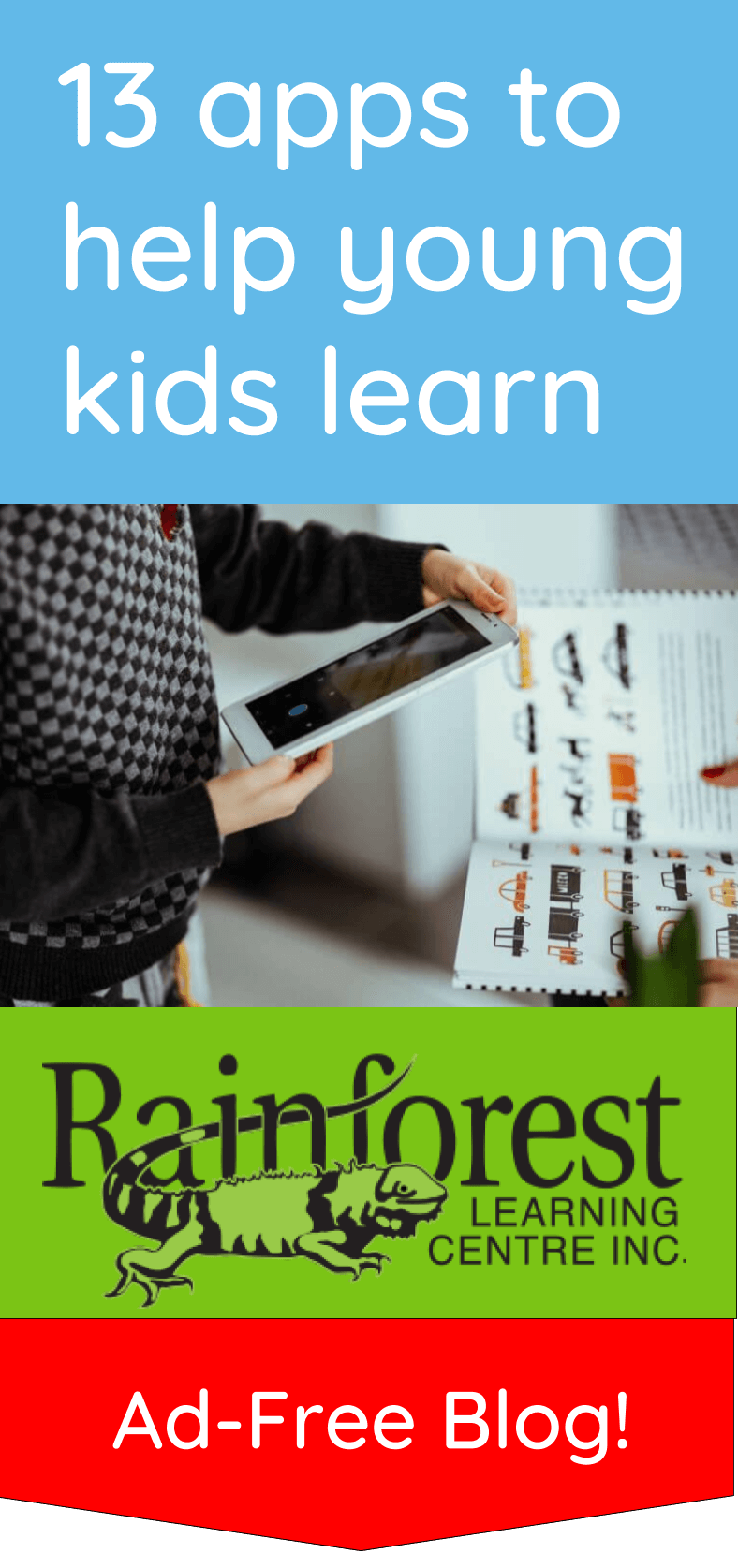
In this digital age, there are an abundance of apps claiming to be educational for children. With so many options, it’s hard to know where to start, especially if you are looking for an app to help your young child learn, and not just play aimlessly. Not only that, but we have discussed before just how important it is to limit screen time for young children. So, you probably don’t want to waste screen time with apps that are not helping your child to grow and learn.
13 educational apps for young learners, in 4 subject categories:
Note: as a daycare centre, we haven’t tried the apps below, but we see they’ve got reasonable ratings, and we’ve seen them mentioned on the web! Please use your best judgement to evaluate their quality and price-worthiness. This article is only meant to help you navigate your way through some learning app options.
1. Language-based apps to use before primary school
When we talk about language-based apps, we aren’t talking about apps that are simply reading books to kids. If you are trying to limit your child’s screen time, you might want to consider reading physical books together, and then focusing on other, language-based screen activities. The reason for this is that there are so many awesome apps that actually help to engage your child in actively creating and working with language. These activities can complement any reading they are exposed to.
Below are some language-related apps to try in early childhood:
Sight Words reading & spelling (Apple App Store & Android Google Play, for ages 3 to 8 )
Kids Vocabulary, Grammar & Language learning games (Apple App Store, for ages 4 years and up)
Avokiddo ABC Ride (Apple App Store & Android Google Play, for ages 4 years and up)
2. Apps that encourage mathematical thinking in young kids
No, we’re not suggesting that you put your four-year-old in front of a screen filled with equations of any sort. Mathematical thinking can start in early childhood with things like puzzles, patterns, and sorting. There are plenty of apps that use images and animations. Young children can relate to these forms of mathematical concept better. These may help prepare them for when you introduce basic math and problem-solving skills.
Below are some math apps for kids to check out:
Elmo Loves 123s (Apple App Store & Android Google Play, for ages 4 years and up)
Puzzingo Toddler Kids Puzzles (Apple App Store & Android Google Play, for ages 4 years and up)
Bugs and Buttons (Apple App Store & Android Google Play, for ages 4 years and up)
3. Musical learning apps for the early years
Again, when it comes to young children engaging visually with music on a digital device, you want to make sure it’s something that is worth the screen time. Luckily, there are lots of apps out there that encourage critical thinking, while also building up musical skills in an early learner. Look for apps that do more than just show a visual image while you listen to music. Children should be able to engage in making their own music while learning about things like rhythm and tone.
Below are examples of musical apps to check out:
Musical Me! – by Duck Duck Moose (Apple App Store, for ages 4 years and up)
DoReMi 1-2-3: Music for Kids (Apple App Store & Android Google Play, for ages 4 years and up)
Tongo Music – for kids (Apple App Store & Android Google Play, for ages 4 years and up)
4. Science apps for young children
Finally, you may also consider introducing your little ones to technology through science. Some of these may overlap with math, especially when it comes to problem-solving and critical thinking skills. That makes them even more worthwhile (hooray for STEM!). Great themes to look for in science apps for young children include animals and nature.
Below we found some cool science apps for your perusal:
Habitat the Game (Apple App Store & Android Google Play, for ages 4 years and up)
AniMatch: Animal Matching Game (Apple App Store & Android Google Play, for ages 4 years and up)
Thinkrolls 2 (Apple App Store & Android Google Play, for ages 4 years and up)
Toca Nature (Apple App Store & Android Google Play, for ages 4 years and up)
When to use educational, early learning apps
As we mentioned above, it is best to limit your child’s screen time on a regular basis. The American Academy of Pediatrics suggests limiting screen time to one hour per day. This time should be spent on high-quality content for children aged two to five. It should also be done alongside parents.
If you are trying to limit your child’s screen time, but still want to reap the benefits of educational learning through apps, try replacing just ‘watching’ time to the interactive apps and games the kids can play instead. That way, your child will begin to learn about these subjects in a balanced way.
See more on our blog:
